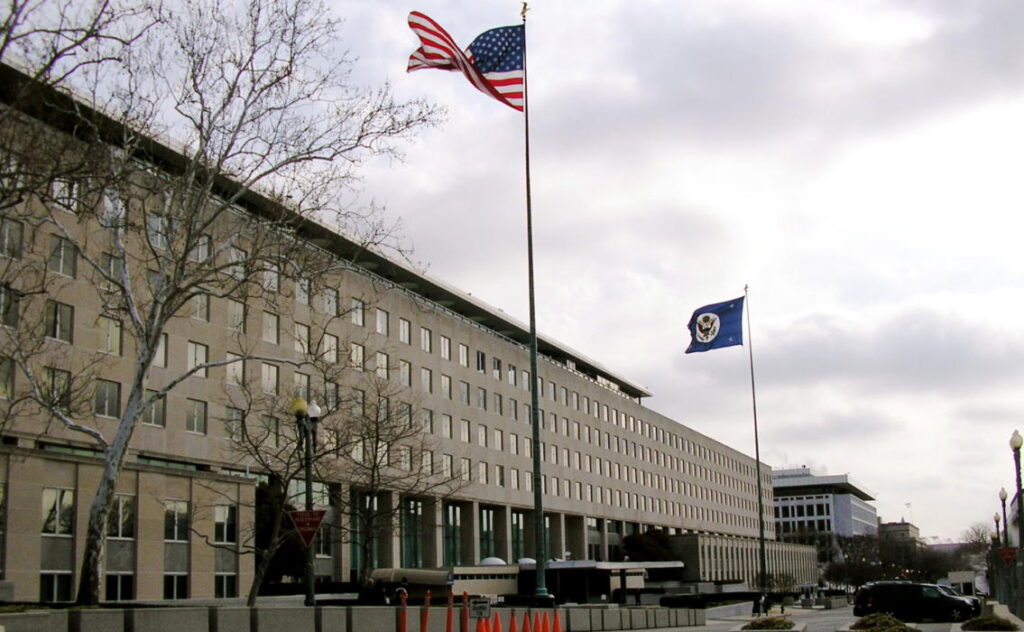.
(Euronews plus Video) – Syria’s people-power uprising has turned into open warfare. After months of trying to crush a largely peaceful Arab Spring movement, and after more than 5,000 deaths, the Syrian regime is now battling an increasingly violent insurgency. Army defectors join the Free Syrian Army after refusing to fire on civilians who persist in their protests.
Arab League observers have been pulled out, unable to stop the bloodshed, and criticised as providing cover for the regime of President Bashar al Assad.
As the insurgency grows, so does the role of armed Islamic extremists and the threat of a devastating civil war. At the UN, Russia rejects talk of a Security Council resolution that could impose sanctions and perhaps lead to intervention.
Western countries, who led a much-debated campaign of air-strikes that helped bring down Libya’s Muammar Gaddafi, are reluctant to get involved in yet another Arab conflict that could become a quagmire.
Chris Burns talks to Veronique de Keyser, a Belgian MEP, a member of the Socialist party and the Parliament’s Foreign Affairs Committee. Also on the programme is Rudolph el Kareh, a Lebanese born political science professor and commentator on Arab World affairs. And joining them is Ammar Waqqaf, a leading voice of the British based Syrian Social Club and also a member of the Ba’ath party. He, and the Club call for reforms, and not for regime change.
U.S. officials: Al Qaida behind Syria bombings
WASHINGTON (McClatchy) — The Iraqi branch of al Qaida, seeking to exploit the bloody turmoil in Syria to reassert its potency, carried out two recent bombings in the Syrian capital, Damascus, and likely was behind suicide bombings Friday that killed at least 28 people in the largest city, Aleppo. The officials cited U.S. intelligence reports on the incidents, which appear to verify Syrian President Bashar Assad’s charges of al Qaida involvement in the 11-month uprising against his rule.
The U.S. intelligence reports indicate that the bombings came on the orders of Ayman al Zawahiri, the Egyptian extremist who assumed leadership of al Qaida’s Pakistan-based central command after the May 2011 death of Osama bin Laden. They suggest that Zawahiri still wields considerable influence over the network’s affiliates despite the losses the Pakistan-based core group has suffered from missile-firing CIA drones and other intensified U.S. counterterrorism operations.
U.S. officials said that al Qaida in Iraq, or AQI, began pushing to become involved in Syria as Assad’s security forces and gangs of loyalist thugs launched a vicious crackdown on opposition demonstrations, igniting large-scale bloodshed. Growing numbers of lightly armed army deserters and civilians have joined an armed insurrection.
Drone attacks effective, foreign fighters leaving Pakistan NW Territories
More below the fold …
Perils are real if Syria disintegrates
(McClatchy) – Since the beginning of protests in March 2011, the administration of President Bashar al-Assad has used the threat of instability and civil war as justification for hanging onto power in Syria.
“Sectarian conflict is a very real possibility and a very grave one,” said Chris Doyle, director of the Council of Arab-British Understanding, “The regime has tried to paint its fall as leading to something worse, and has thrived on this notion as part of its survival mechanisms.
A recent opinion poll commissioned by the Qatar-based Doha Debates suggests that 55 percent of Syrians do not want Assad to resign. Most of those who opposed his resignation said they were mainly motivated by fear of what might follow.
Ammar Waqqaf, a former member of the Syrian Social Club, a group of British-based Syrians that supports government-led reforms in Syria, said Assad and his administration enjoy “wide support.”
“There is a high risk of civil war if we don’t address underlying sectarian issues,” said Yussef Anwar, a representative of the Kurdish Democratic Party in Syria and a supporter of the opposition movement. “When I talk to Syrians, it is clear that people are very afraid. They look at what is going on across the border in Iraq and think that the future is uncertain.”
- See my recent diaries:
- Foreign Troops and al-Qaeda Infiltrating Into Syria
- Obama In Bed with Israel and Neocons [Breaking News Update]
- Al-Qaeda/FSA Claim Twin Bombings in Aleppo, Syria [Update]
- Stellar Propaganda on Syria by BBC and US MSM
- Al Qaeda in the Islamic Maghreb (AQIM)
"But I will not let myself be reduced to silence."
